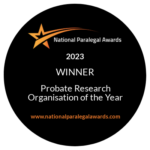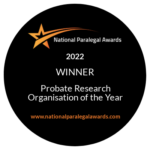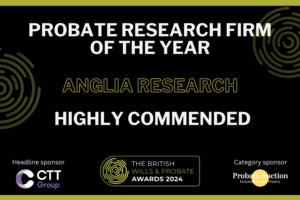Tracing absentee freeholders

At Anglia Research we frequently locate absentee landlords, or their successors in title, for leaseholders who wish to sell – or extend – their leases, or buy the freehold of their property. In this article, Rosie Kelly summarises the various options open to lessees who are unable to contact a missing freeholder.

There are many situations in which an absentee freeholder can pose a serious problem.
Most arise when a freeholder has converted a property into flats and sold them on long leases, retaining only a minimal value in the freehold. The landlord moves home, dies or forgets about the property, leaving the leaseholders to face a range of potential problems.
- In an apartment block, the freeholder is usually responsible for the maintenance and upkeep of the communal areas, which can otherwise become neglected and fall into disrepair.
- It is the freeholder who usually provides buildings insurance, and when they cannot be contacted a leaseholder will find it difficult to sell their lease. After all, if prospective buyers have no proof that the building is insured, lenders will not be prepared to grant a mortgage.
- The lease may be approaching its end and the lessee may wish to extend it or even to purchase the freehold themselves.
Fortunately, the law provides a number of solutions to these issues.
There are two options available by law to leaseholders in England and Wales who want to purchase the freehold on their property, a process which is often called ‘leasehold enfranchisement’.
How to buy the freehold when your landlord is missing #1
Leaseholders can apply to the County Court for a vesting order under Section 27 the Leasehold Reform, Housing and Urban Development Act 1993.
For a property that contains multiple residences, such as an apartment block, collective action is key: two thirds of the owners of the flats must join in. Additionally, if there are ‘intermediate’ landlords involved, the court can substitute one of these to act as the main landlord.
The Court will need to be satisfied that reasonable efforts to trace the freeholder have been made, such as engaging the services of a tracing agent. The agent carries out a search and produces a report which can be used as evidence that the landlord is genuinely missing.
If the application to vest the freehold in the lessee is approved, a further application will be made to the First-tier Tribunal (Property Chamber) to determine how much should be paid for the freehold and this price, less any costs approved by the Court, must then be paid to Court so that the vesting order can be registered at the Land Registry.
How to buy the freehold when your landlord is missing #2
The second route to acquiring the freehold may be more efficient. It allows the leaseholder to acquire the freehold under Section 33 of the Landlord and Tenant Act 1987, where the landlord is in breach of a covenant relating to repair, maintenance or management, or where a manager has already been appointed by the court for at least two years.
Often an absentee freeholder is in breach of their obligation to insure the property and this is sufficient to allow the lessee to make the application to the County Court.
As with the previous option, the lessee must have satisfied the Court that reasonable enquiries have been made to trace the freeholder. The price payable for the freehold is then determined by an appointed surveyor, to be paid to Court before the vesting order can be registered at the Land Registry.
How to extend a lease when the landlord is absent
When a leaseholder qualifies for a lease extension under the Leasehold Reform, Housing and Urban Development Act 1993 (as amended) and is unable to find or contact their missing landlord, they can apply to the County Court for an order to remove the need for service of the initial notice.
Again, the leaseholder must show that they have made reasonable efforts to locate the freeholder, and a report from a tracing agent will satisfy this criterion. If successful, a new lease is granted by the Court, the details of which are determined by the First-Tier Tribunal (Property Chamber), and the price paid to the Court.
Please note that this is a summary of the relevant property laws. Leasehold enfranchisement and extension are specialist areas and expert legal advice should be sought on the particular circumstances of a case.
What happens when the freeholder has died?
If research reveals that the freeholder has died, the new freeholder will usually be the person who has inherited the estate, either through a valid will or through the rules of intestacy. This is the person with whom the lessee will communicate to get buildings insurance details if they want to sell their property, or in order to extend their leasehold or purchase the freehold.
However, if the freeholder has died intestate and with no next of kin (or if the company owning the freehold has been dissolved), the freehold will often vest in the Crown under the rules of bona vacantia or ‘ownerless property’.
In cases like this, it is often possible for the leaseholder to purchase the freehold from the Crown through the Treasury Solicitor.
How we can help
At Anglia Research we are experts in people-tracing. We also employ more accredited genealogists* than any other UK company.
As a result, we can help you locate your absentee landlord – and if they have died, we can locate their successor in title. When neither can be found, our reports are readily accepted as evidence in court applications for leasehold enfranchisement or extension.
Contact us for a free initial consultation and we’ll get back to you with a free assessment and quotation.
*members of AGRA, ASGRA and AGI. In addition, most of our case managers hold paralegal practising certificates and are regulated by the PPR, giving you the reassurance of an independent complaints procedure and compensation scheme. For more details, please see our accreditation page.
2025 Anglia Research Services All Rights Reserved.
Anglia Research and Anglia Research Services are trading names of Anglia Research Services Limited, a company registered in England and Wales: no. 05405509
Marketing by Unity Online










